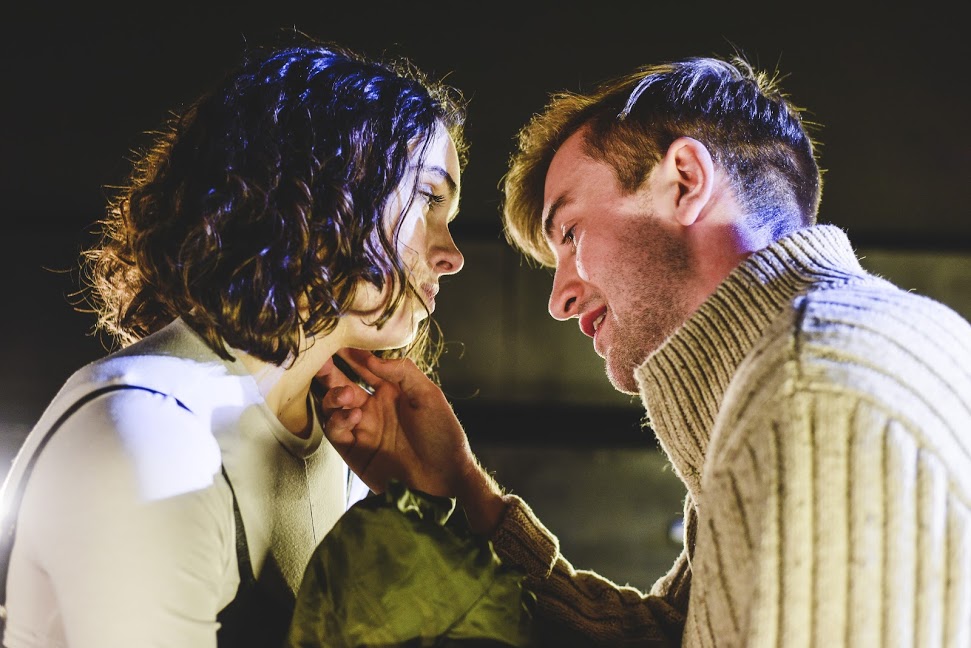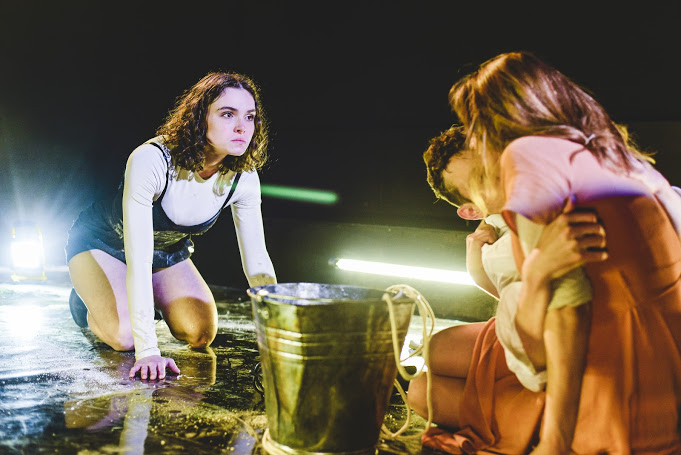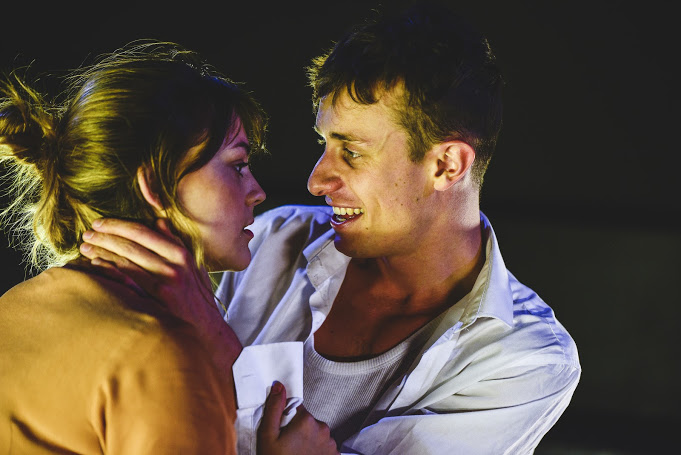 (4 / 5)
(4 / 5)
The Story by Tess Berry-Hart centres around X (Siwan Morris), a person “of the people” returning to their homeland after a year volunteering in “occupied territories”, helping refugees. X is being held under suspicious circumstances by V (Hannah McPake) who, under many different guises, interrogates, questions and advises X.
As much as this is a story about criminalising those who help others – it also explores the violence of language, manipulation of tone and deconstructs the ideas of a story and truth in the world of “justice”. It is this that truly stands out in Tess Berry-Hart’s writing.
There is so much to like about Berry-Hart’s writing. It is technically very strong. The language is brilliant, at times beautiful, at other times horrifying. The slow-burning story is amplified by excellent psychology within the characters.

David Mercatali’s direction is strong. Mercatali deals with the slow-moving story well, pacing the play in a manner that constantly makes the audience think and second-guess. The tone also shifts in an interesting and subtle way.
The acting performances are strong all round. Hannah McPake’s subtle diversity in her different “characters” as V is phenomenal, whilst Siwan Morris’ defiance as X is extremely moving. Luciana Trapman as The Storyteller also does a great job delivering powerful vignettes that are projected onto parts of the set.

Set up with promenade staging, Delyth Evans’ design is simple, yet effective. The long, narrow stage gives a real sense of entrapment that enhances the production. Combining with Katy Morison’s lighting which is mostly understated, but flickers and flashes at key moments. Tic Ashfield’s sound design completes the design elements in a very strong way. Somewhat unnecessarily, but effectively, bringing in glitches on voiceovers to distort the messages we’re hearing. This drives the audience’s curiosity to the mention of “the voice”.
This is potentially subjective, but The Story’s main issue is that it’s not challenging enough. There’s not enough emotion and the lack of a real story with a build really takes away from the potential power of this play. It feels quite safe and relies on an echo chamber for an audience. An audience who already think and feel how the play wants you to think and feel about the messages and themes.
It also doesn’t go deep enough into the topics it tackles. Far from a dystopian world – this is the reality of what we are currently living in. The dystopian feel takes away from that realism.
The disappointment comes from the clear potential of the play. It’s on the verge of being something brilliant, just falling short.

The Story offers a lot to reflect on in its content and enjoy in its production but doesn’t reach its potential through failing to truly challenge its audience.
The Story at The Other Room, Cardiff
8th October – 27th October 2019
Written by Tess Berry-Hart
Directed by David Mercatali
Siwan Morris as X
Hannah McPake as V
Luciana Trapman as The Storyteller
Design by Delyth Evans
Sound Design by Tic Ashfield
Lighting Design by Katy Morison
Video Design by Simon Clode
Assistant Director: Samantha Jones
Stage Manager: Rachel Bell
Production Manager: Rhys Williams
Season Fight Director: Kevin McCurdy
Fight Choreographer: Cristian Cardenas
Choreographer: Deborah Light
Production Photography: Kirsten McTernan
Associate Director: Matthew Holmquist
Casting Director: Nicola Reynolds
BSL Interpreter: Julie Doyle
Set Builder: Will Goad

 (3 / 5)
(3 / 5)




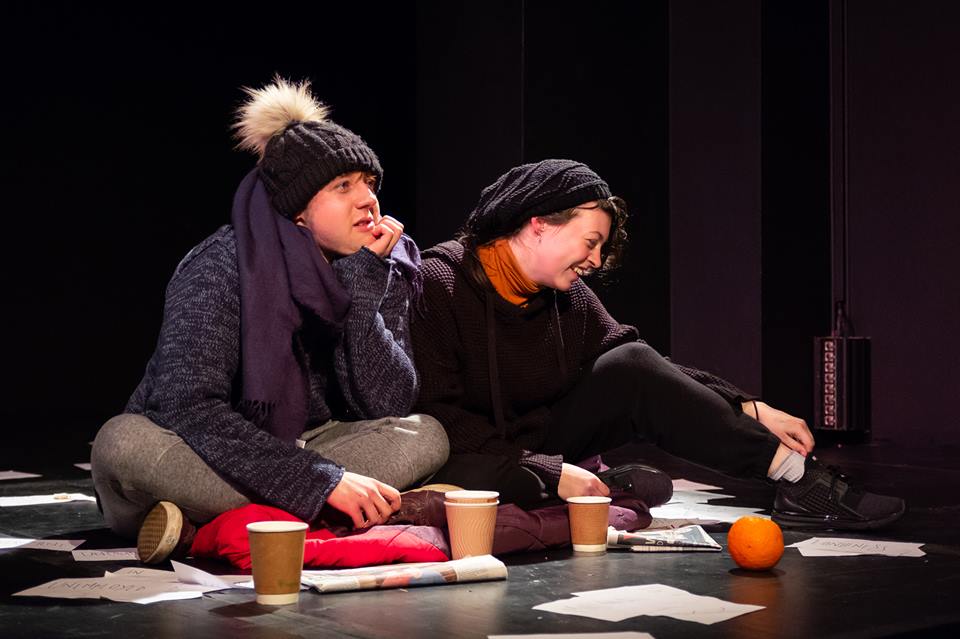
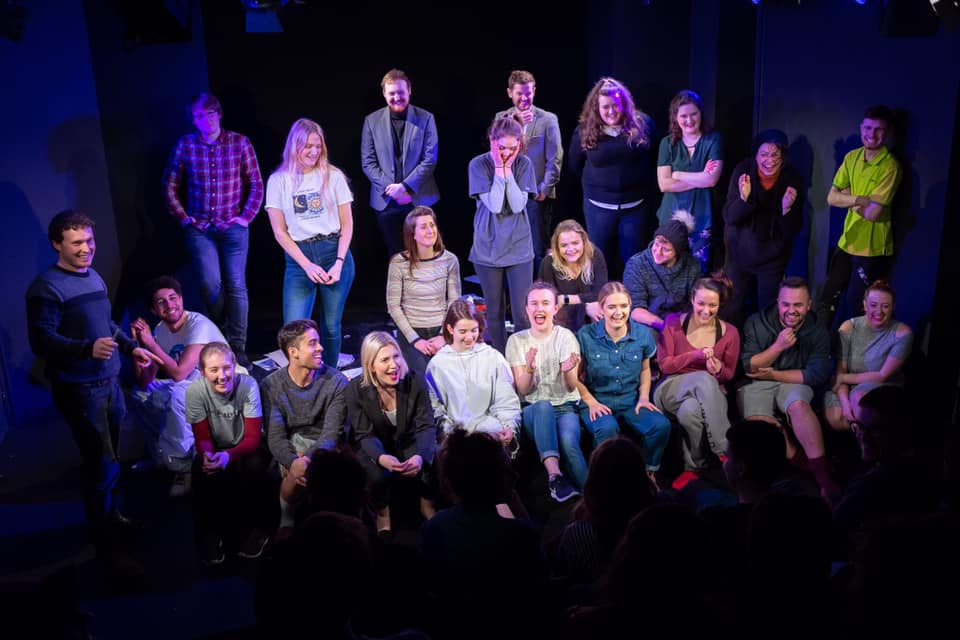
 (5 / 5)
(5 / 5)